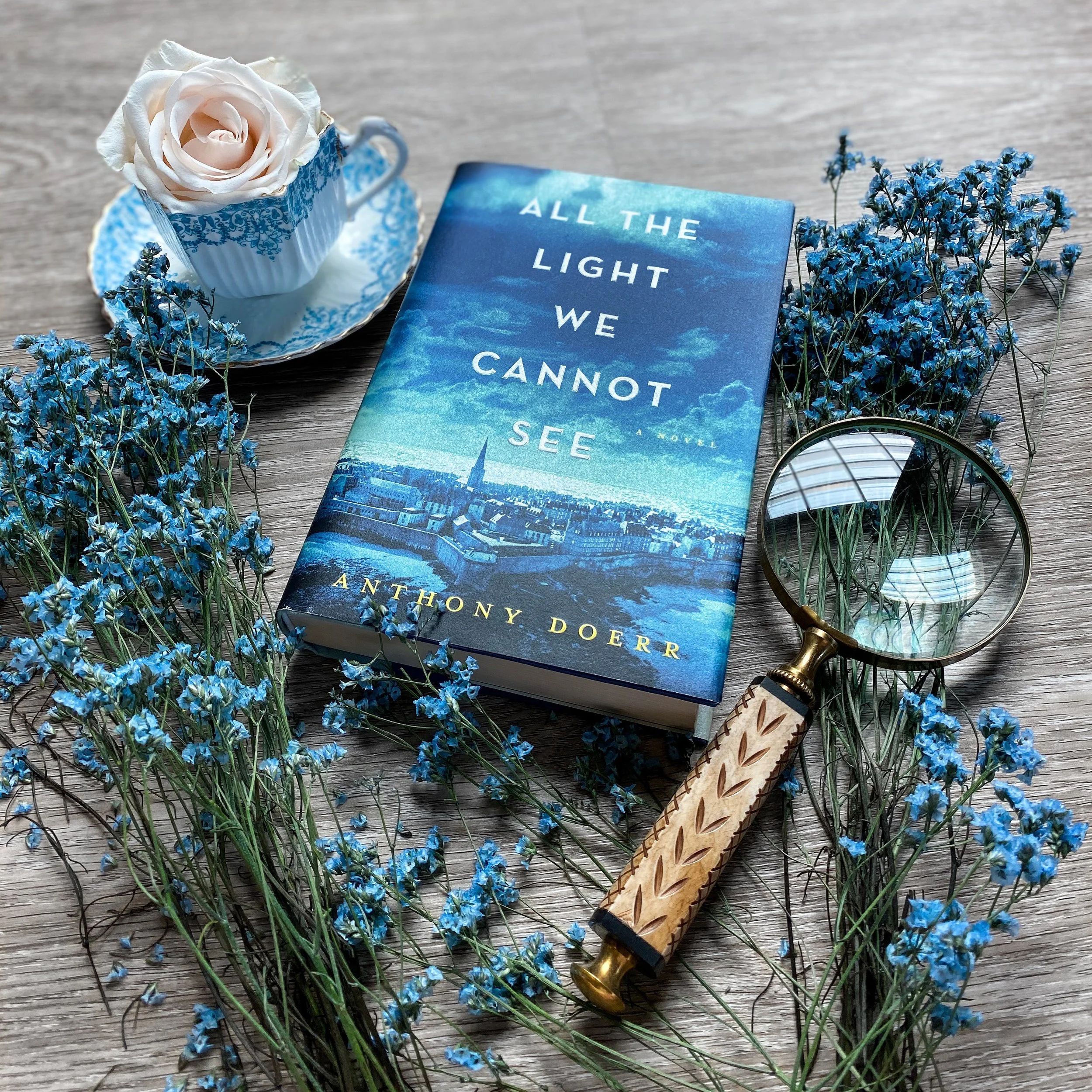Discussion: Why I No Longer Recommend ALL THE LIGHT WE CANNOT SEE
[ID: A blue book with a photograph of a city view of Paris on the cover sitting on a gray wooden floor. Blue baby’s breath surrounds the book and to the right is a magnifying glass with a wooden handle. To the left is an antique white teacup with a blue border holding a white rose.]
ALL THE LIGHT WE CANNOT SEE was one of my favorite books in 2015 and I rated it five stars. It made me ugly sob and I immediately set out to make everyone I knew read it to cry with me.
Seven years later, I’m reconsidering my thoughts thanks to folks in the disability community. One of the main characters in this book is blind and I’ve recently read several critiques by blind reviewers including this awesome article by Sheri Wells-Jensen. They’ve pointed out that Marie is infantilized and portrayed as helpless. Even though Marie is 17, her father treats her like a child and the narrative encourages this belief. She can’t navigate the city on her own, care for herself, or do basic tasks.
Because I’m not blind and I didn’t approach the book thoughtfully, I missed a lot of red flags. Portraying a blind character without agency, who passively accepts other people’s direction over her lives, sets a dangerous precedent. In the words of reviewer Sheri Wells-Jensen, media matters “because it not only reflects what we believe, it also helps establish those beliefs”.
I don’t want to add to this stereotype about blind people so I’m officially rescinding my recommendation of ALL THE LIGHT WE CANNOT SEE MORE. I was already prepped for this discovery by my experience reading Anthony Doerr’s latest book CLOUD CUCKOO LAND which put a bad taste in my mouth for cliched and ableist portrayals of an autistic character and a character with a cleft palate.
This also leads me to wonder yet again, is it a good idea to read books about disability from authors who have no personal experience with it? I do think that disability rep can be done right by non-disabled authors… but it’s rare. Doerr is obviously not blind and did not care to do his research or have a sensitivity reader.
Before an able-bodied author writes a disabled character they need to do way more research, bias checking, and soul-searching before they add something to the literary canon that further demonizes, infantilizes, or demeans disabled people.
In conclusion, I’d ask all of you (disabled and non-disabled alike) to take a good long hard look at the media you’re consuming. How is it treating disabled characters/other minorities? How can we do better?

